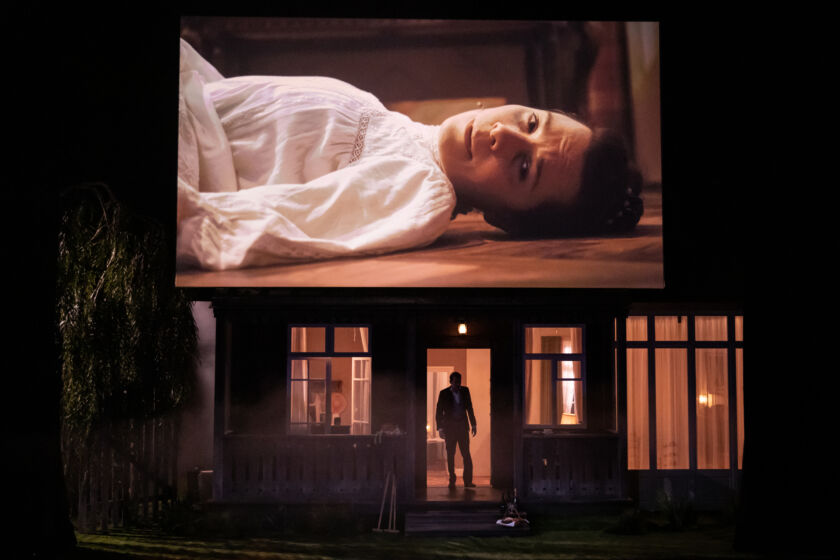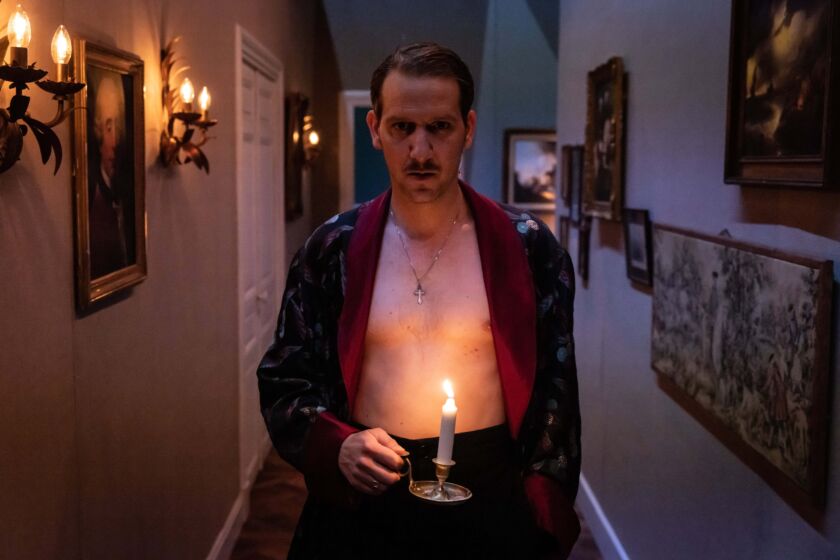Le Passé
Leonid Andrejew


40 candles are lined up at the front of the stage. Behind them, a fire burns in a fireplace. In warm sepia tones, a rich Russian interior languishes, carpets, furniture and people in costumes of the penultimate turn of the century. Julien Gosselin locates his play in a world that has disappeared: a member of the State Duma accuses his wife Yekaterina Ivanovna of adultery, firing three shots at her. The play Yekaterina Ivanovna is the centrepiece of a theatrical evening focusing on the forgotten Russian author Leonid Andreyev, the anti-Tsarist and anti-Bolshevist who failed to find a place in the canon of Russian classics, overshadowed by Gorky and Chekhov. In this expansive work, the young French director Julien Gosselin proves his habitual mastery of lending anecdotal details symbolic charge and leading actors in cinematic ways, closely accompanied by several video cameras: the large screen above the stage sets shows an excitingly precise piece of chamber theatre, full of beautifully composed images and lovingly placed props. Gosselin, however, is also a melodramatic creator of total works of art, adding an opulent soundtrack to the action.
The stories In the Fog, The Abyss and The Resurrection of the Dead by Leonid Andreyev flank, comment upon and enrich some of the motifs of the central plot about the demise of souls and morals. They do so by different theatrical means, ranging all the way to expressionist puppetry. Most of all, the symbolist short drama Requiem is at the core of Gosselin’s reflections on a theatre for the end of the world.
Eberhard Spreng
First published in the Festival insert of Salzburger Nachrichten
